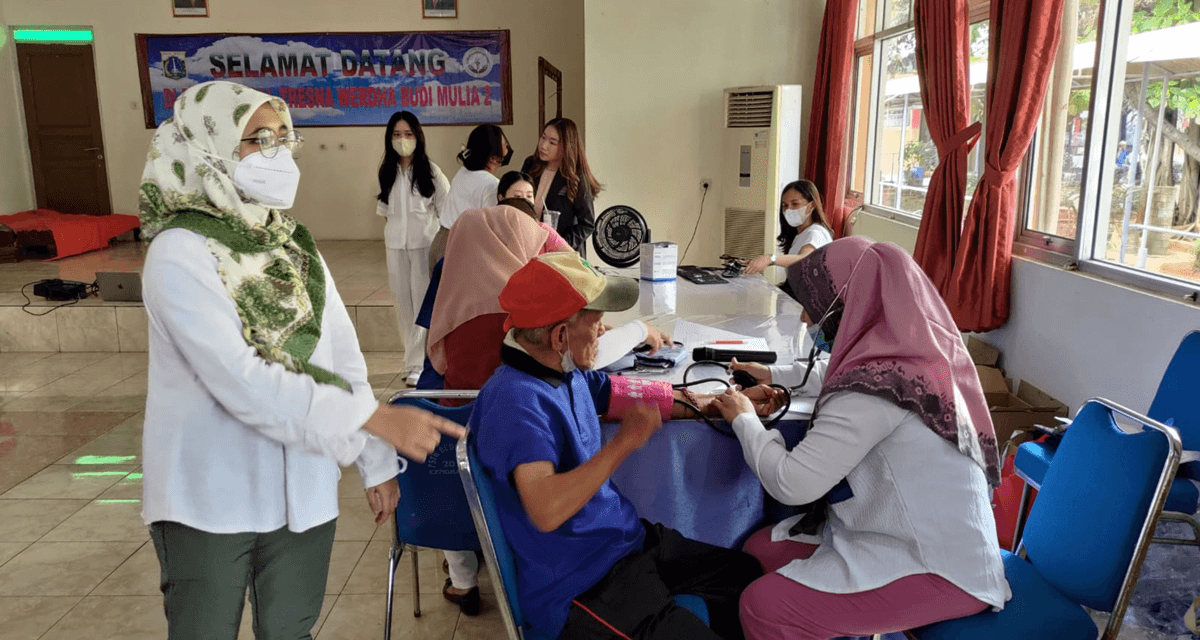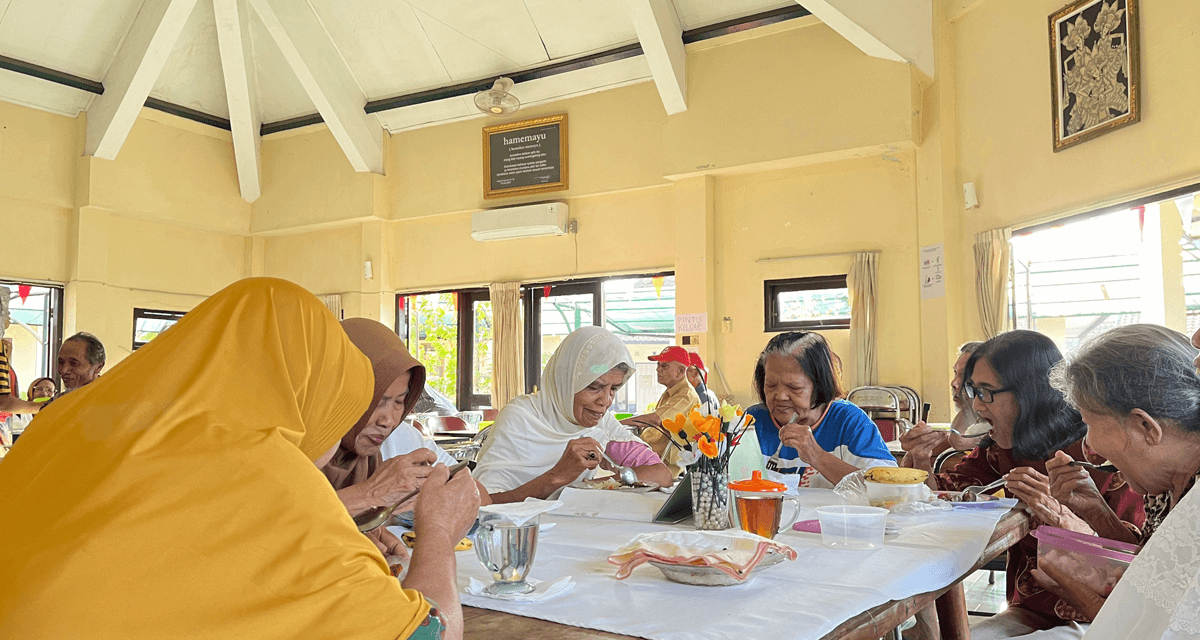Jakarta, May, 2025 - Indonesia is entering an era of aging population, where the number of elderly people increases significantly every year. According to projections from the Central Statistics Agency (BPS), in 2035 Indonesia will become the country with the largest elderly population in Southeast Asia. This condition brings various challenges, especially in terms of health, which greatly affects the quality of life of the elderly. In response to this situation, the Ajinomoto Indonesia Group presents the Elderly Meal Program—an AminoScience-based program designed to support optimal nutritional fulfillment for the elderly, as well as the implementation of the Bijak Garam concept. This program aims to help the elderly stay healthy, active, and independent through food that meets their nutritional needs. With a scientific approach and experience in nutritional innovation, Ajinomoto is committed to making a real contribution to improving the welfare of the elderly community in Indonesia.
Ajinomoto's Elderly Meal Program has been implemented since 2021 starting from a collaborative research study with a research team from one of the State Universities (PTN) in Indonesia, which was conducted in 2 nursing homes in the Yogyakarta area. The research period took place from October 2021 to January 2022, taking the research location at the Abiyoso Unit of the Social Service Center for the Elderly (BPSTW) and the Budi Luhur BPSTW - Yogyakarta.

Before conducting the research, the research team first collected baseline data in the form of health checks, physical function, and assessment of the menu provided for the elderly, as well as measuring the level of nutritional knowledge of the cooks and administrators of the nursing home. Based on the baseline data obtained, it is known that the disease most commonly suffered by the elderly in this study was hypertension, had lower grip strength than their age group, and their average sodium intake was also high, so that appropriate interventions were given in the form of low-sodium menu modifications through the application of Smart Salt concept and increasing protein intake. In addition, nutritional education was also provided for the cooks and administrators of the nursing home. As we know, sodium intake (which is found in large amounts in salt), if it exceeds daily needs, can increase blood pressure, and if left untreated for a long time, it will cause uncontrolled hypertension that risks damaging blood vessels and triggering heart disease. Ajinomoto's Smart Salt Concept is a form of education that encourages people to start reducing salt consumption without sacrificing taste, by simply reducing the use of salt in cooking daily-dish, and adding a little MSG.
The Elderly Meal Program is one of Ajinomoto's initiatives that has been proven to help improve the quality of life of the elderly, especially in the health sector. This program is implemented through nutritional interventions in the form of modifying the elderly's food menu and educating cooks and nursing home administrators. In 2024, Ajinomoto expanded the scope of this program to three nursing homes in the Yogyakarta area, namely Panti Wreda Budi Dharma, Madania, and Hanna. The selection of Yogyakarta was based on data showing that this province has the highest percentage of elderly people in Indonesia, and is in second place in the number of hypertension cases nationally. "As in the implementation of the pilot program in 2021, we conducted baseline data measurements and initial analysis of the nutritional content of the food menu served. Initial results showed that many elderly people experience high blood pressure, and their daily protein intake is still below the Nutritional Adequacy Rate (AKG) standard," said Grant Senjaya, Head of Corporate Communications of PT AJINOMOTO INDONESIA.

After three months of intervention through the Elderly Meal Program (October - December 2024), the results achieved showed a significant positive impact. The quality of the food menu in terms of nutritional content and taste has improved, contributing to increasing the nutritional intake of the elderly. In addition, the application of the Bijak Garam concept in menu modification has an impact on reducing sodium intake and increasing preferences for the menu served by the shelter, as indicated by the decreasing number of elderly food leftovers. All of these things have a real impact on the health of the elderly, as indicated by a significant decrease in the average systolic and diastolic blood pressure from category I hypertension to pre-hypertension, as well as improvements in physical function as reflected in the tendency for increasing grip strength values and decreasing frailty.
Welcoming the commemoration of National Elderly Day (HLUN) on May 29, 2025, Ajinomoto Indonesia Group invites the entire community to care more and pay attention to the welfare of the elderly. With elderly people who are healthier, more active, and have their nutritional needs met, they can continue to contribute to their families and communities. This is in line with the spirit of HLUN 2025 which carries the theme “Lansia Sejahtera, Indonesia Bahagia” because the quality of life of the elderly is part of the foundation of a more independent and empowered future for the nation.